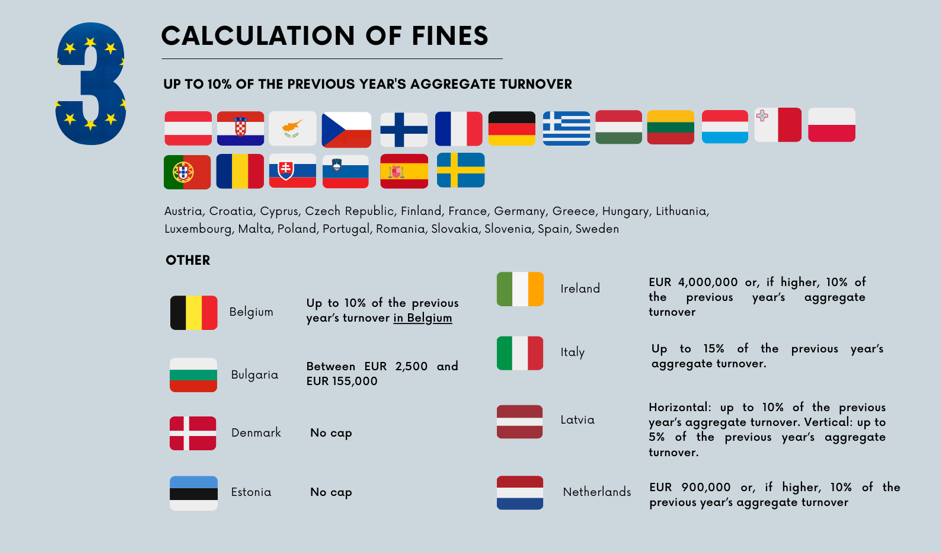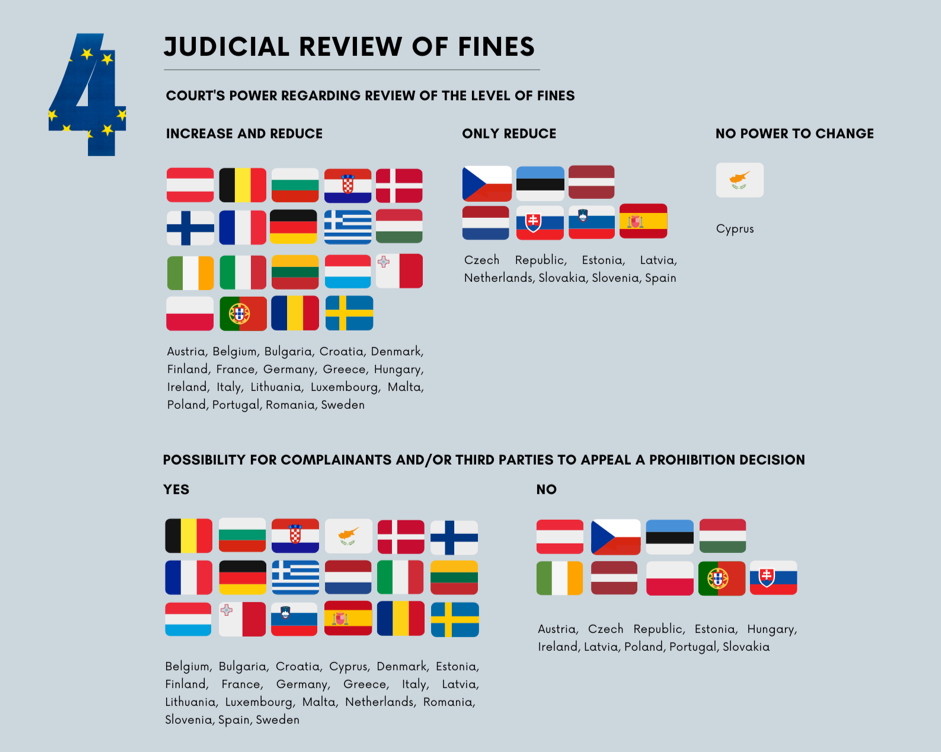By Alex, Emilie & Lia
On January 14, 2019, the European Commission published Directive 2019/1, also known as the ECN+ Directive (to be implemented by February 4, 2021). This Directive aims to empower National Competition Authorities (NCAs) in their enforcement of Articles 101 and 102 TFEU. The Directive has been read as a response to the criticism that, currently, there are a lot of differences between NCA’s fining powers and judicial review thereof. These differences undermine the system of parallel powers for the enforcement of competition law under Regulation 1/2003. This is especially important when we take into account that competition cases are allocated within the European Competition Network (ECN). The ECN is not an official European Union (EU) institution and does not have any legal personality. Accordingly, the decisions on case allocation that take place within the ECN cannot be challenged. Ultimately, this creates an unlevel playing field and legal uncertainty for the undertakings involved. The ECN+ Directive partly addresses these issues, but some challenges remain going forward.
4 key differences between Member States you didn’t know existed
At present, EU competition laws are enforced in 27 Member States. Although the NCAs enforce the same substantive EU competition rules, the procedures for the imposition and review of fines vary widely. We will provide you with a brief overview of differences, categorized by actors, subjects, calculations, and judicial review of fines.

It becomes clear that the vast majority of NCAs has been granted the power to impose fines themselves, but others have to bring the case to another administrative or judicial institution. It is also noteworthy that while the EC does not have this power, an increasing number of NCAs in the EU can impose fines on individuals involved in the breach of competition rules.

19 NCAs can only impose fines that do not exceed 10% of an undertaking’s total turnover in the previous year. Notably, however, there are a few exceptions. The Bulgarian NCA, for instance, can only impose fines between €2,500 and €155,000, whereas the NCAs in Denmark and Estonia are not restricted in setting the amount of the fine by any limitation. In addition, certain divergences in the application of national leniency regimes still exist. This concerns, for example, the potential exclusion of ringleaders and multiple offenders (e.g. Greece). Differences can also be observed in the maximum reduction allowed per lenient applicant. To illustrate the impact of aforementioned differences, it has been estimated that national differences in calculating fines might lead to fines diverging up to 25 times for the same type of infringement.
In all Member States, NCA’s fining decisions can be challenged by the fined undertaking/individual before national courts on the basis of the domestic judicial procedures. However, it has been observed that also the national review systems and, consequently, the levels of judicial protection differ greatly across the Member States as a result of the principle of national procedural autonomy. To be more specific, the national structures differ on the following parameters: i) the type and the numbers of court instances; ii) time limits and deadlines for the parties to appeal in first instance, counting from the notification of the decision and ranging from 14 days to 90 days depending on the state; iii) the average duration of the appeal, counting from the first instance until the last instance court ruling; iv) the extent and the nature of the judicial review (full review, or only on points of law); v) the review of the level of fines imposed by NCAs (increase, decrease or cancel), see figure 4; vi) the legal standing of complainants and third parties, see figure 4; vii) the expertise of judiciary; and viii) the burden of proof.

Divergence – Is it really such a big deal?
To understand why the differences actually matter, it is important to combine two factors: i) the differences in the national systems as such and ii) the framework according to which the cases are allocated between the MS.
As to the first factor, the existing diversity in national procedural rules may result in inequality for the reason that the same substantive rules trigger different fines by the public enforcers across different jurisdictions. When undertakings face different levels of fines and judicial protection in different Member States, it is of relevance which NCA investigates a competition case and enforces the law. This brings us to the second factor, because, as already mentioned, the case (re-)allocation of competition cases takes place within the ECN and the decisions on this matter cannot be challenged due to the latter’s lack of accountability (more criticism about case allocation within the ECN can be found in this blog post).
In view of the existing differences and the quite discretionary nature of the case division, the undertakings cannot predict or appeal to the competition agency that might handle their cases and as a result, they might be fined and subsequently reviewed differently with regard to equivalent violations.
Consequently, the question arises whether convergence could be an appropriate solution. It must be clarified that applying the principle of equality in the fine imposition and review procedures does not necessarily mean full harmonization of practices. Considering the current decentralized regime and the involvement of national actors, that seems virtually impossible. However, the implications of unequal conditions in EU competition law could justify convergence to a certain degree by increasing consistency concerning similar misbehaviors.
Convergence through new ECN+ Directive (2019/1) – fit for purpose?
Accordingly, the EU has recently adopted Directive 2019/1. The so-called ECN+ Directive essentially aims to ensure the operational independence of NCAs as enforcement agents of Arts 101 and 102 TFEU. In doing so, it set minimum standards of conferred powers and tools to empower them sufficiently. Thus, Member States retain discretion to execute and innovate domestically best practices, while the principle of equality guarantees effective enforcement throughout the Union.
The figures in this blog post are based on the following sources:
– Cengiz, F. (2016). European Parliament, An Academic View on the Role and Powers of National Competition Authorities (IP/A/ECON/2016-06).
– Dunne, N. (2016). Convergence in competition fining practices in the EU. Common Market Law Review, 53(2), 453-492.
– Paha, J. (Ed.). (2016). Competition Law Compliance Programmes: An Interdisciplinary Approach. Springer.
– Schweitzer, H. (2013). Judicial review in EU competition law. In Handbook on European Competition Law. Edward Elgar Publishing.
